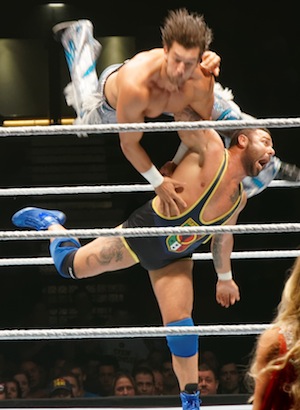Zero Density--No Power inside the Body
/One of the definitions of pure-internal power is that there is no compression or loading in the body what-so-ever. This experience or state, once achieved in motion, can be describe as zero density. Because there is no compression anywhere, every place in the body feels the same. Although one might feel a distinction between inside and outside the body, density does not define that distinction. The distinction is purely spatial. This is well established in works on Daoist inner alchemy over the last 1000 years. But as my students tend to point out, it doesn't matter whether you are a tenured scholar of Daoism or a Kung Fu child prodigy, if you don't have this specific experience these words are going to be difficult to comprehend. Somatic language requires somatic experiencing.
Where does this weird concept of zero density come from? Humans are one of the few animals that use our arms for carrying things. And we are the only animals that do a lot of carrying. We are also the only animals that make constant use of tools. This fate (命 ming) is surely related to walking on two feet. The evolution of the spatial-mind (神 shen) is linked in humans to the unconscious and automatic experience of being upright on two feet, and to our ready capacity to carry stuff. Carrying things is practical, but it is also tied developmentally and evolutionarily to status displays. All accumulation of status-objects (money, Rolexes, cell-phones, cars, patchouli oil) begins with carrying stuff. Carrying is also the most convincing way to make a threatening status display-- simply pick up a stick or a rock.
The things we carrying are tied to our sense of who we are, and what we are (性 xing). That is why pure-internal power is associated with enlightenment. This type of counter-intuitive empowerment begins with giving up ambition.
Identity markers, the qualities we "possess," create density in our bodies. Granted, it is a strange idea that the characteristics of our personality involve carrying stuff! Wilhelm Reich called this character armor. The Daoist take on it is that we carry around invisible symbolic-talisman. These talisman are a trade we make in the unseen (unconscious) world; when we seek status, we are effectively trading away some freedom of action. It is a subtle form of dis-empowerment. This is why theatrical performance is so closely linked with enlightenment. Acting is the study of how identity is socially constructed, great acting is the capacity to discard all evidence of a permanent self, and temporarily take on a new one.
How does zero density play out in martial arts?
Throws to the ground based purely on momentum can be done without any lifting or carrying. Throws based on lifting someone off the ground usually require carrying unless the opponent is tricked into jumping. Generally speaking any type of throw causes our body to become dense, but picking an opponent up off the ground creates more density. The ultimate status display is picking an opponent up over our head and roaring!
Yet I doubt that a tiger with a monkey in his mouth is engaged in a status display. One method for achieving zero density is as follows:
- Practice emptying the limbs, like water flowing inwards toward the torso, without hardening any part of the body.
- Release the feeling of you limbs out in all directions such that you lose proprioception.
- Add an object (a rock or a stick), into your hand and empty it as if it were part of your body.
- Do a set movement pattern while a partner is resisting your movement, empty their entire body as if it is part of your body.
- Lift a partner off the ground as if he or she is part of your body.
Perhaps we shouldn't even call this gongfu, as that term implies hard work. There is nothing wrong with effort. But understanding that artificial effort comes from carrying things on two feet is key to understanding Daoism.

